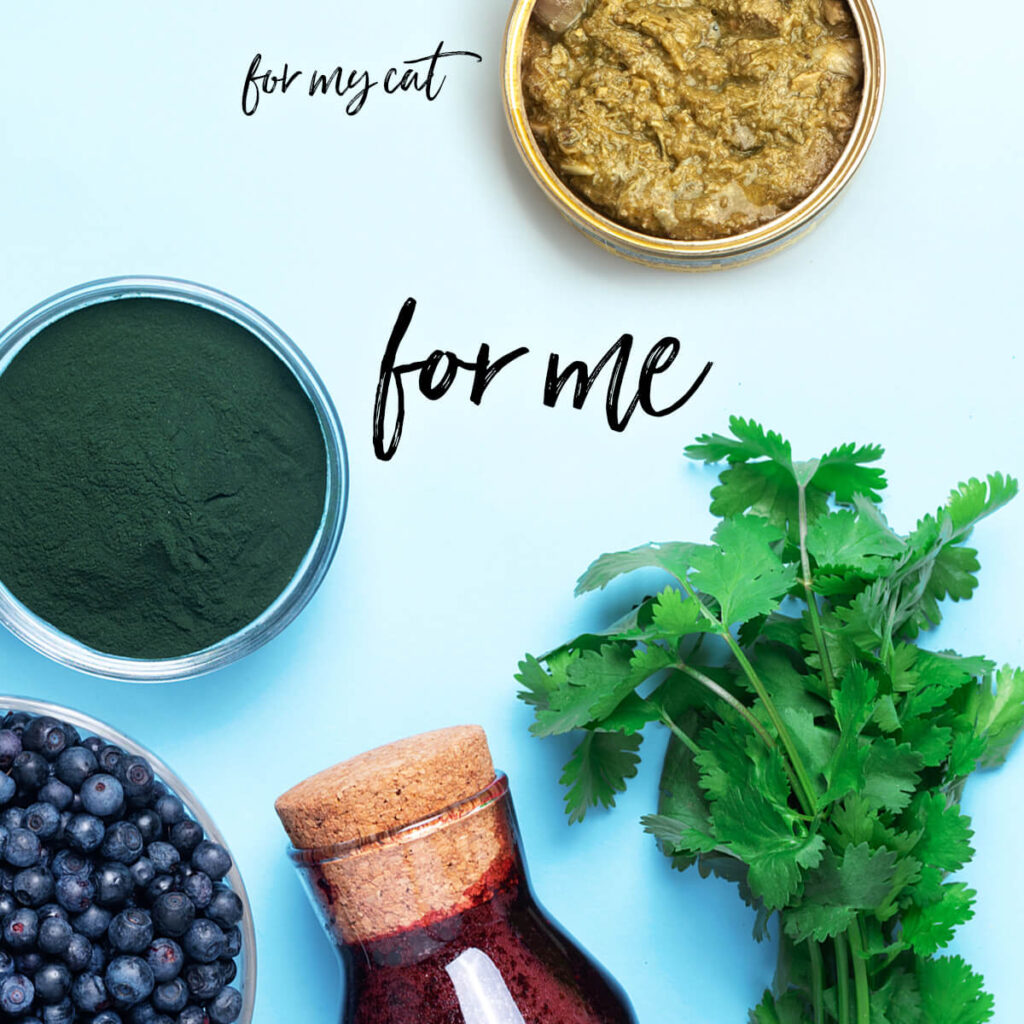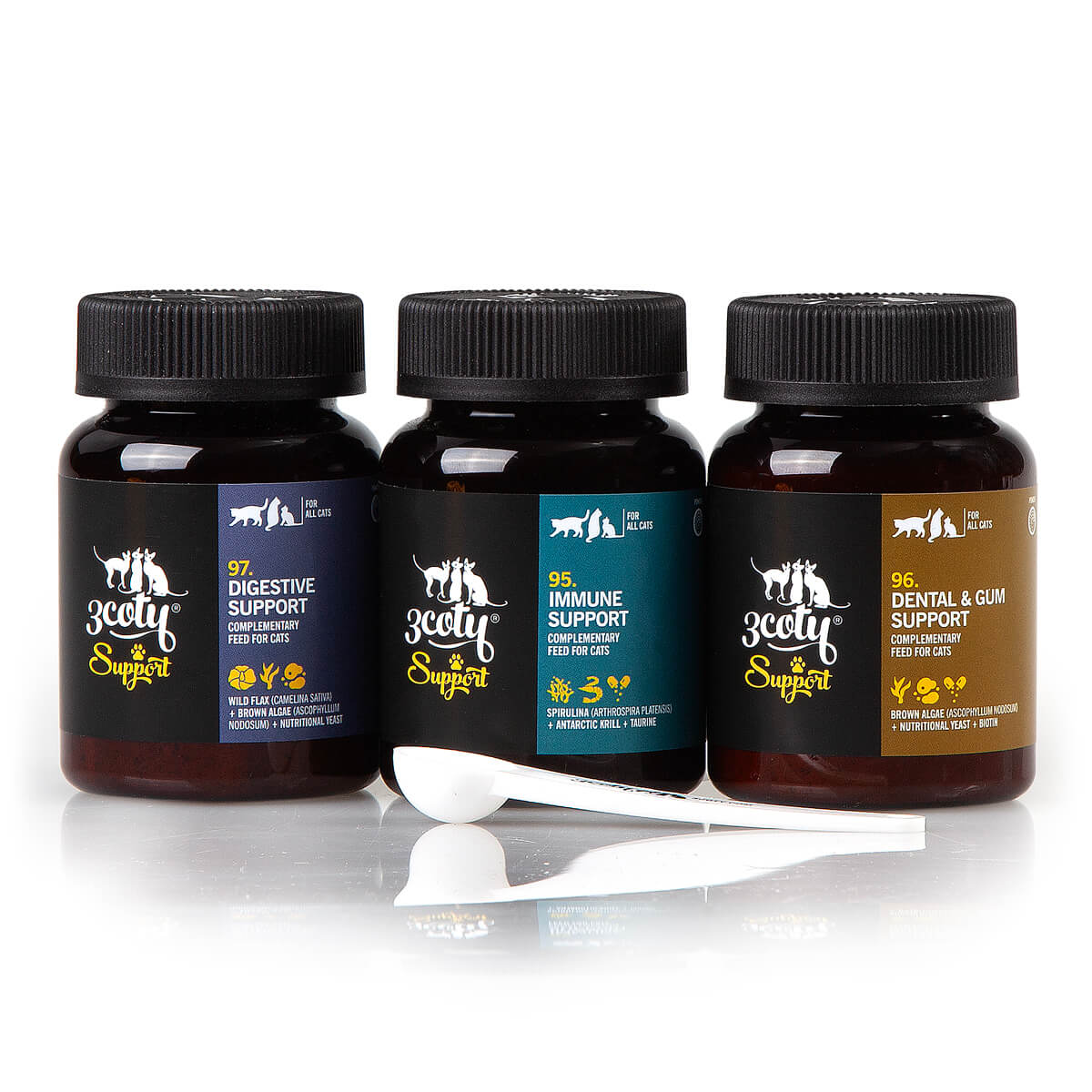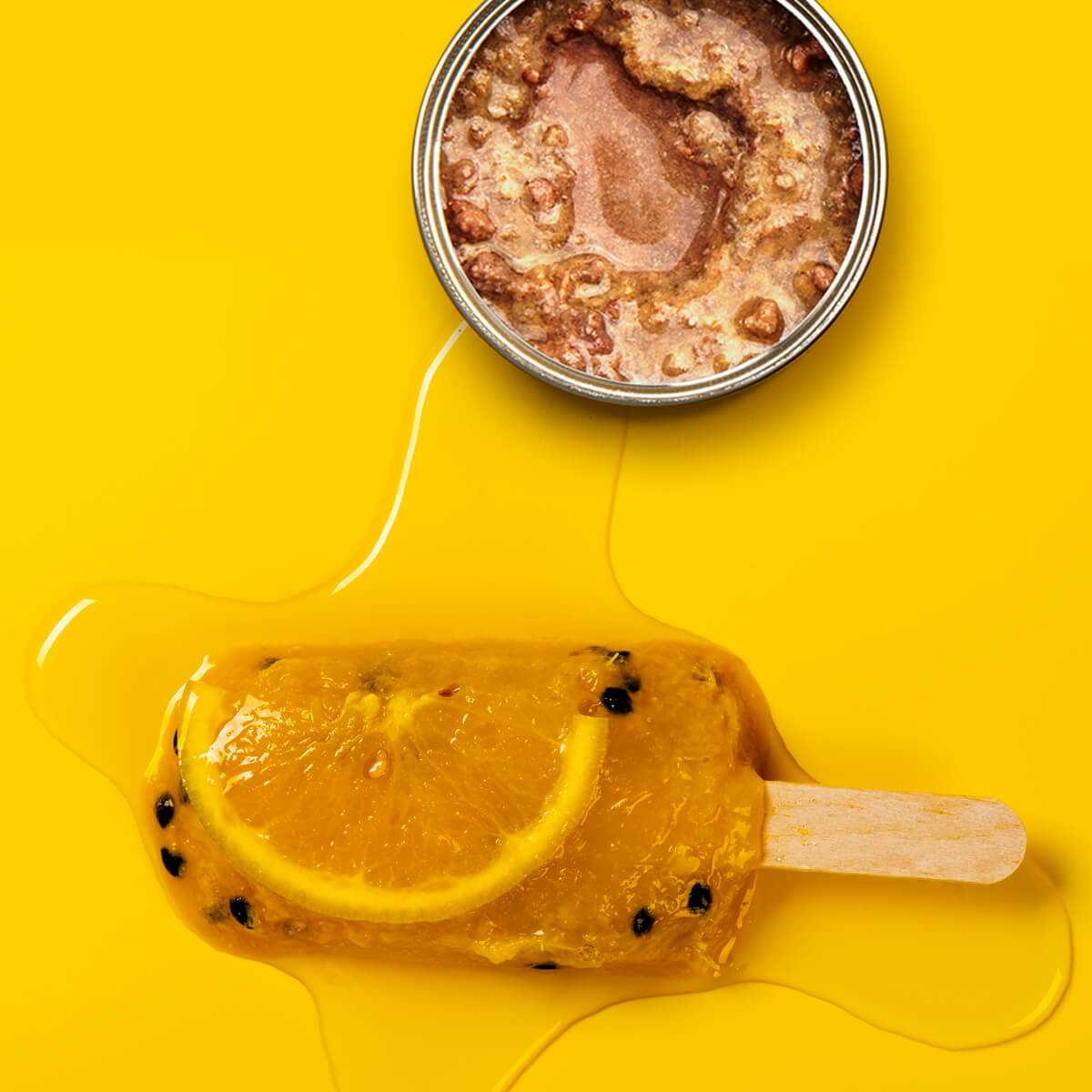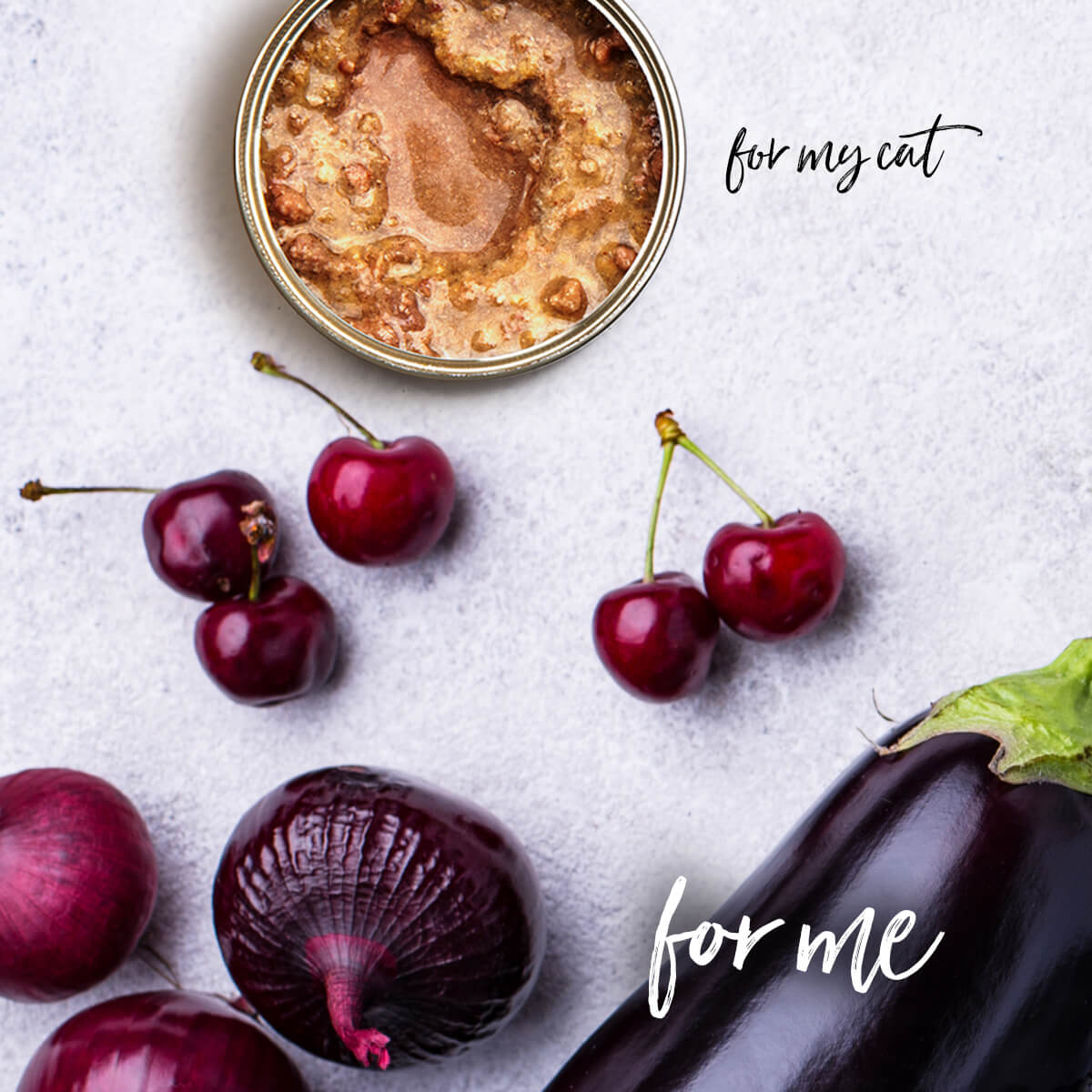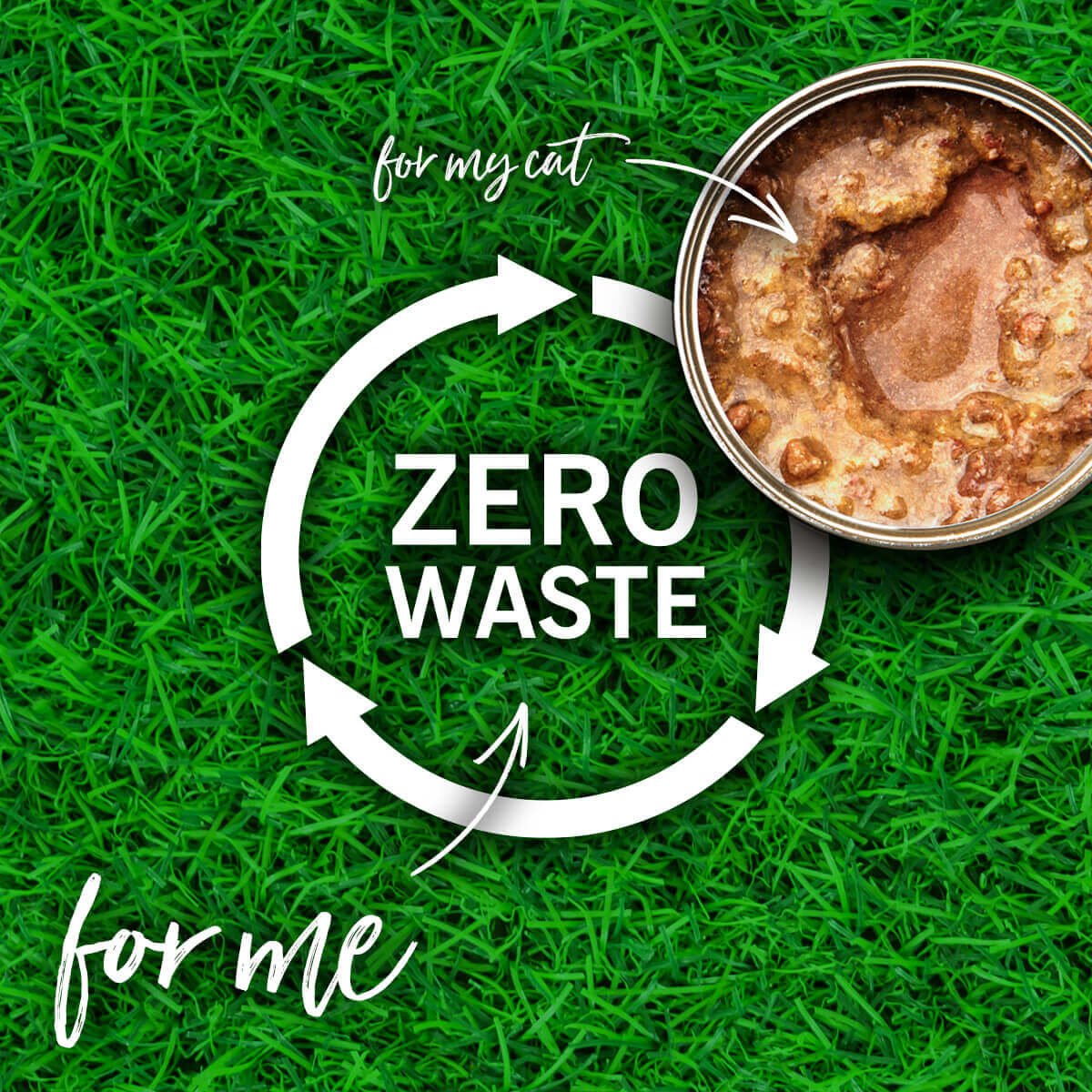Superpower right from the start
We know we have been going on about how our wet cat food with added spirulina is so beneficial to cats, but the contribution to feline health does not start once your cat is grown up. As kittens transition from their mother’s milk to solid food, their own immune system develops to fight off diseases and illnesses. The spirulina boost can accelerate the development of the immune system.
Spirulina contains high amounts of vitamin A, B12 and E as well as its wealth of minerals, from easy-to-absorb iron (not the usual additive iron-sulphate) to valuable fatty acids including GLA (gamma-linolenic acid). The low fibre cell structure makes it easier for a developing digestive system to absorb all these nutrients and help the kitten develop into a healthy and active adult cat.
Particularly breeders were asking for a baby kitten friendly version of our spirulina foods which they can also feed to the mother, wanting to give their kittens the best start in life once they start on solid food. Having carefully tested the necessary proportions, we have now added kitten food to the list of foods enhanced with spirulina. This means we now have the two mono-protein adult foods made of either chicken or turkey as well as the newly launched kitten food.
How do you start your kittens on their first solid food? From a spoon, syringe or your finger?
Did you know?
Spirulina and chlorella are both nutrient-rich microalgae, but they are not the same. Spirulina grows naturally in salty and alkaline lakes, while chlorella comes from fresh still water. Spirulina is a blue-green, spiral-shaped cyanobacterium, and chlorella is a single-celled green alga. Chlorella contains more chlorophyll and is known for its detoxifying properties, while Spirulina provides a broader range of vitamins, minerals and proteins. Both are considered superfoods, yet they come from very different environments.
